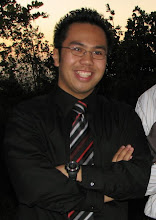"I FIGURED IF I HAD ANYWHERE TO PRESENT
FAR-FETCHED IDEAS...
ITS HERE AT TED."
I get random links from random people at different times. They fit into one of three categories:
1. Sometimes they're funny (Nik sends to me one just about every day)
3. Sometimes, they just strike you in ways that you've never imagined.
Yesterday, Shraddha introduced me to TED, through a video that was demonstrating technology that might give us the sixth sense. No, TED is not a person (not a Ted Mosby, or a Ted Dansen, nor is it a hot 3 letter name appropriate for a 80s toy robot). TED is an annual conference that spreads ideas in Technology, Education, and Design. Previous speakers at the conference have included Bill Clinton, Al Gore, Bono and even Bill Gates. However don't think that any Average Joe can attend their conferences live (which requires an invitation or application with annual membership fee of about $6000) What caught my eye was the subheader on the front page of their site demonstrates its effect on the world:
Inspired talks by the world's leading thinkers and doers.
I started scanning the site left and right, seeing if there were any links toward medicine or any videos, and that's when I was introduced to a girl named Eva Vertes. Her talk was called Eva Vertes Looks to the Future of Medicine. When she was 19 years old, she gave this talk about her visions of where Cancer research should be directed. When she was 17, she had discovered important links towards a drug cure for Alzheimer's. For your viewing pleasure, I have a streaming link to the 18 minute talk, above.
It was quite an engaging 18 minutes to watch for several reasons. I was particularly impressed in the way that she drove herself to start researching and seeing how the different molecules of the body interact to cause tumors to move and to spread. If you listen to her lecture, she is able to compress major medical concepts (such as what us medical students have been studying for hours under fluorescent lights & piles of textbooks) in layman's terms. However, what inspired me the most about Ms. Vertes, a Princeton student, was the way that her passion about the material and what she learned earned her a standing ovation at the end. The way that she delivered that speech, really inspired me to get into my lecture notes and study medicine not for sake of memorization or performing clinical tasks, but to understand how the human body works.
To be honest, this site was exactly what I needed. There's more videos from other aspiring leaders, just like the one that Ms. Vertes presented. Like I say... the freedom of thought idea is just so amazing. With that freedom (and the respective motivation), its able to drive people's passions to move further and to things that were so not imaginable before (Ms. Vertes is a clear example). The power of questioning allowed her to find new lines of thought and see problems like one's never seen before. Like Descartes said, Cogito ergo sum: "I think therefore I am." And it seems more and more that thinking more about what I'm studying means I can take my skills so much further. Now, that's what I call motivation for progress.
To me: We aren't in medical school just to be doctors... We're here to move medicine forward.
Oh yeah... Thanks, Shraddha. :P








